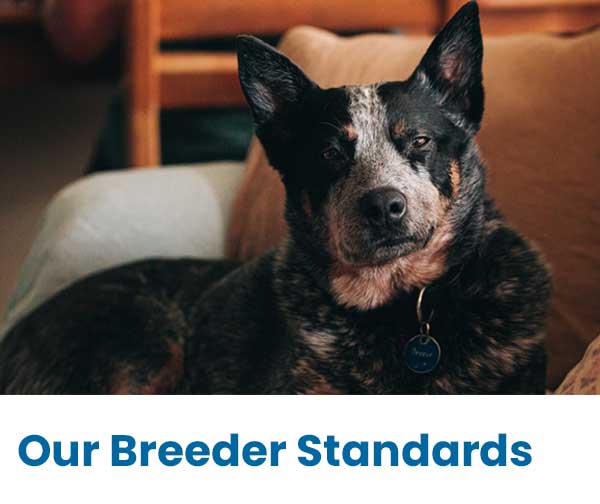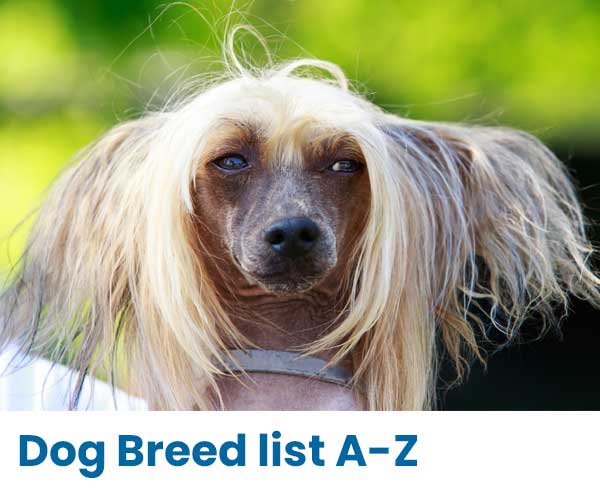German Shepherd breed guide
One of the most popular and recognizable dog breeds, the German Shepherd Dog (GSD) is renowned as a police, protection, military and guide dog, and a loyal family member. The GSD was developed from the herding breeds of Germany in the late 1800’s.
Alert, strong and agile, the GSD is recognized for its unmistakable appearance, intelligence, unfailing stamina, physical resilience and willingness to work.
German Shepherd Temperament
A well balanced GSD is alert, courageous, self-assured, versatile and willing. Owners will describe their GSDs as loyal, protective, smart and sensible with more than a hint of goofy. Protective and affectionate with their owners, the GSD can be aloof and standoffish with strangers. The GSD will form a strong bond with their handler and want to be with them.
Their strong minds are matched with a strong athletic body. The GSD has stamina and is designed to trot all day. They can have an eager prey drive that needs to be managed through clear expectations and training. A well balanced, well trained GSD can be trusted with small birds and animals. A bored, unbalanced or untrained GSD can become problematic.
The ideal home for a German Shepherd Dog
A German Shepherd might be for you if you:
A German Shepherd Dog isn't for you if you:
German Shepherd training and socialization
GSDs are clever and quick to learn. They are ranked as the third most intelligent dog breed after Border Collies and Poodles. They do best with a calm and consistent training approach and will rise to your expectations. German Shepherds love to please and love to know what is expected of them.
GSDs need to be well socialised when young to ensure they have exposure to a variety of situations and people including children. They also need plenty of mental and physical activity to thrive. You absolutely must be prepared to invest significant time and energy into your GSD now and forever.
An unbalanced GSD can be overly timid, anxious or aggressive, easily bored, over excited, destructive and loud. The combination of physical strength and high intelligence is a recipe for disaster in the wrong hands.
How much space and exercise do German Shepherds need?
The German Shepherd is a high energy dog. They need significant physical and mental stimulation to be well balanced. This might include walking, jogging, bushwalking or cycling, agility, hide and seek, search and rescue, herding, tracking, obedience, agility or endurance.
As long as their requirements for physical and mental stimulation are met, they can live in a small to medium living environment but room to run and play is ideal. If bored or left alone for too long, a young dog especially will become destructive. GSDs are renowned fence jumpers and escape artists if their needs are not being met.
German Shepherds and grooming
Whether a short or long hair variety, German Shepherd Dogs have a double coat. The undercoat sheds prodigiously once a year and consistently for the rest of the year. Be prepared to brush!
German Shepherd colour variations
There are three main color variations:
Black and Tan (Black with reddish tan, black with tan, black with gold to light grey markings).
All black.
Sable (Grey with dark shadings; black saddle and mask).
General Facts
Life Expectancy: Average life expectancy is 9 - 12 years.
Average weight: Males: 30-40 kg ; Females: 20-30 kg
Average height (at withers): Males: Height at withers 60-65 cm; Females: Height at withers 56-60 cm
The length of the body is a little longer than the height at the withers.
German Shepherd Breed Information References
German Shepherd Council of Australia
German Shepherd Dog League of NSW
Coren, Dr Stanley. 1994, (University of British Columbia), "The Intelligence of Dogs", Vancouver.
Check our listings for Puppies for sale here and click on the links to our breeders below to go to their profile page. You can also click here to search for Registered German Shepherd Breeders by location.
- German Shepherd breeders Sydney, New South Wales, NSW
- German Shepherd breeders Melbourne, Victoria, VIC
- German Shepherd breeders Brisbane, Queensland, QLD
- German Shepherd breeders Adelaide, South Australia, SA
- German Shepherd breeders Perth, Western Australia, WA
- German Shepherd breeders Darwin, Northern Territory, NT
- German Shepherd breeders Canberra, ACT
- German Shepherd breeders Hobart, Tasmania,TAS
- German Shepherd breeders Gold Coast, Queensland, QLD
- German Shepherd breeders Townsville, Queensland, QLD
If you are a small scale ANKC registered breeder and would like to be listed here, just contact us or follow a few simple steps to add your details yourself.
We welcome helpful comments and contributions to information about this breed by email






